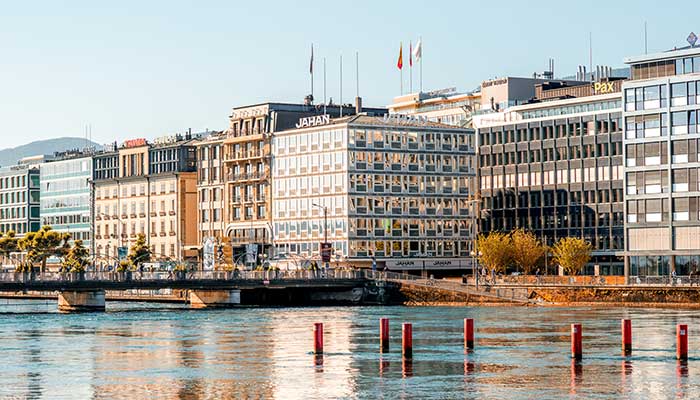web_financialcentreswitzerland_shutterstock_496257430.jpg

Switzerland's financial centre. The country's corporate tax system allows special privileges for foreign firms, making the country an attractive destination for multinational corporations.
The country had been under international pressure to reform a system that campaigners argue adds to the perception of Switzerland as a tax haven.
A government plan to abolish special treatment for foreign firms, while keeping the system competitive by offering new tax breaks in areas such as research and development, had won support in business and political circles as it would prevent taxes rising sharply for international companies.
However 59.1% of voters rejected the plan yesterday, which critics said would hit public services. The government will now have to rework its proposals, which may lead to a sudden rise in taxes for multinationals and hit foreign investment into Switzerland.
The country has promised to abolish special privileges for foreign firms by 2019 – a commitment it may no longer be able to uphold.
Ueli Maurer, Switzerland’s finance minister, said it would not be possible to find a solution “overnight” and that it could take a year to think up a new plan.
Until then, Switzerland will continue to implement its current corporate tax framework. Under this, companies are taxed nationally at a rate of 8.5%, although this is applicable to after-tax profits, resulting in an effective tax rate of 7.8%.
Companies are also taxed at a local level by the 26 Swiss districts or cantons, which set their own corporate tax rates. Together with the federal rate, this can vary from between 12% and 24%.
Cantons are also able to offer lower tax rates to foreign businesses than they do to domestic ones, making Switzerland an attractive destination for foreign firms.
Under the proposals, the cantons would have been able to retain their ability to compete with one another on corporate tax, but the treatment for international companies would have been brought in line with that of domestic ones.
Some cantons planned to slash rates for all businesses in order to avoid hitting multinational corporations in their jurisdictions with huge new bills, while the government also promised some federal funds to plug any budget shortfalls arising from the change.
Federally, it said the burden would be around 1.1bn swiss francs ($1.09bn) per year while preventing tax losses of over 5.5bn swiss francs ($5.48bn) triggered by an exodus of companies currently receiving special privileges.
But critics, including opposition parties and trade unions, said the reform was too generous and would leave too big a gulf in cantons’ budgets, hitting other taxpayers, civil servants and public services.
The country’s opposition social democrat party also called for a rejection of the referendum vote on the basis that it was not clear how much the new privileges offered under the reform would really cost.
The proposals envisaged a number of measures to encourage innovation, including a patent box for research and development activities.
The reform’s supporters expressed regret that voters had not followed both houses of parliament in accepting the plan.
Economiesuisse, an association representing over 100,000 Swiss companies, called for a new reform template “as soon as possible” to provide businesses and cantons with certainty and ensure the continued competitiveness of Switzerland.
Heinz Karrer, president of Economiesuisse, said the referendum result does not mean the current system can be maintained.
“Companies operating in Switzerland must be certain that their taxation is accepted internationally. A system change is unavoidable.”













